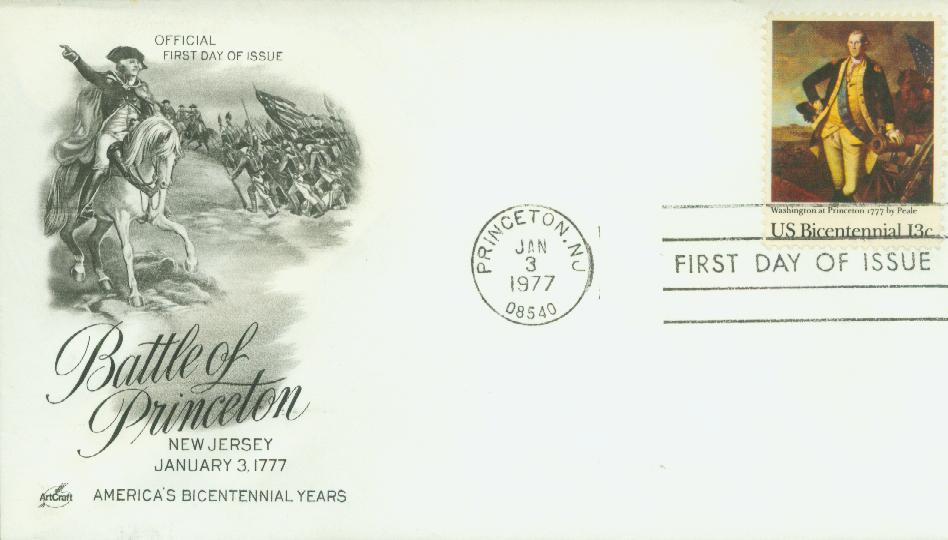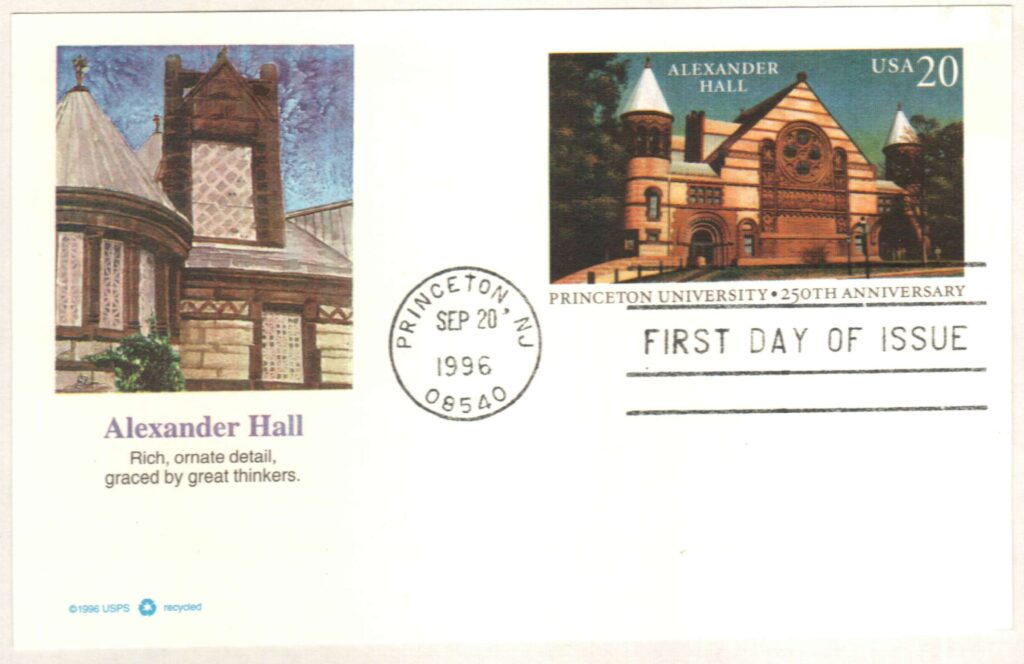On January 3, 1777, George Washington earned a major victory at Princeton, New Jersey.
In late December 1776, General George Washington famously led his men across the Delaware River to capture the town of Trenton, New Jersey. To retaliate, British General Lord Cornwallis assembled a force of over 9,000 men at nearby Princeton.
On January 2, Cornwallis left Princeton with about 8,000 of those men to attack Trenton. But they were held off over three attempts and retreated for the night, planning to return the next day. That night, Washington consulted with his officers and decided to attack Princeton the next day. Most of his army quietly abandoned Trenton overnight, while a small force of 500 remained, to give the appearance that they were digging in.
By morning, Washington’s plan was behind schedule, so he sent Brigadier General Hugh Mercer and a force of 350 men to destroy the Stony Creek Bridge, which would delay Cornwallis’ army. During this time, British Lieutenant Colonel Charles Mawhood, on his way to Trenton, discovered that the American troops had left the town and were headed to Princeton.
Mawhood quickly turned his army around and battled with Mercer’s troops. The two forces exchanged fire for about 10 minutes, but the outnumbered Americans were fighting with rifles, which took much longer to load. And when the British launched a bayonet charge, the Americans were overrun. During the fight, Mercer was bayoneted and died as depicted in this John Trumbull painting.
Shortly after Mercer’s death, Brigadier General John Cadwalader arrived on Washington’s orders. However, when his untrained men saw Mercer’s troops retreating, they fled as well. Washington then arrived with his own soldiers and rallied the retreating troops, shouting, “Parade with us, my brave fellows! There is but a handful of the enemy and we shall have them directly!”
Washington rode his horse beyond the front lines to direct his men’s fire. Hidden by a cloud of smoke, many feared he’d been hit, but when the smoke cleared, he was there, unharmed, waving them forward. Washington and his men then forced the British into an all-out retreat.
On the outskirts of Princeton, Brigadier General John Sullivan’s men forced the British to retreat as well. Some of them attempted to hide in Nassau Hall, but were surrounded and eventually surrendered.
While the British considered Princeton to be a minor American victory, it was a huge morale booster to the Americans, inspiring more men to enlist in the army. It also marked a major loss of control in New Jersey for the British.
Click here to see what else happened on This Day in History.






The importance of good leadership by genereal officers cannot be underestimated indeed!
Thanks Mystic as you have provided more details about the Battle of Princeton than I recalled from my U S History class.
A good job by Mystic
Great job Mystic. Many historical facts that I never knew about and you guys report about them.